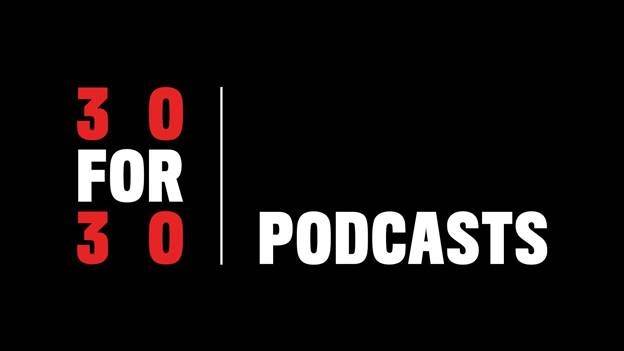ESPN’s 30 For 30 Podcasts “The Bag Game” Now Available
ESPN’s 30 For 30 Podcast debuted all four episodes of its next installment, The Bag Game.
What's Happening:
- 30 for 30 Podcasts debuted all four episodes of its captivating next installment The Bag Game on April 18.
- The audio documentary, hosted by ESPN investigative reporter Paula Lavigne, goes in-depth on the sprawling criminal case that rocked college basketball through the story of Billy Preston, a 5-star recruit to Kansas who was poised for the NBA.
- Before he ever played a regular season game for the Jayhawks, a minor car accident in 2017 set Billy on a different course.
- He got benched due to NCAA eligibility questions, tying into a years-long undercover federal investigation.
- In 2018, prosecutors brought fraud and other criminal charges against assistant coaches, apparel executives, an aspiring sports business manager and more.
- Three defendants were convicted at trial of scheming to pay young players like Billy Preston or their families, ruining their NCAA eligibility.
- But no college head coaches were charged. What did it reveal about the system? And what did it change?
- Lavigne has been on the reporting team covering this story for more than five years, and tells the tale with exclusive interviews, wiretap recordings, firsthand accounts and court testimony.
- As today’s college athletes navigate a new world that allows them to earn money from their talents, The Bag Game sheds new light on the reality for previous generations.
- For decades, under-the-table pay-to-play in youth and college basketball was an open secret that defined many lives on and off the court.
- 30 for 30 Podcasts can be found on the ESPN App, Amazon Music, Apple Podcasts, iHeart, Spotify, TuneIn, SiriusXM, Pandora and wherever podcasts are available.
- All four episodes of The Bag Gameare now available for fans to binge-listen.
The Episode Lineup Includes:
Episode 1: The Making of Billy Preston
- In his early years, Billy and his mother Nichole struggle to get by in L.A. An active kid, Billy finds basketball through his mom’s new partner, T.K., a high school coach who’d also made it to the pros as a player.
- Billy’s star rises in youth leagues. He generates buzz as an NBA prospect, with top colleges recruiting him, and his family pulls out all the stops to support his dream.
Episode 2: Nichole and the Bag Man
- Billy’s mom Nichole let her son focus on his game. Meanwhile she fielded all the onlookers who wanted Billy on their team.
- To play for a top college program, Billy couldn’t accept any money, or he’d ruin his eligibility.
- Yet offers to circumvent that abound: aka, the bag game. In the college recruitment dance, Billy gets his top pick and Nichole makes a connection that promises to secure the family’s finances. But Billy’s dream is short-lived.
- And Nichole’s dealings later get federal investigators’ attention.
Episode 3: The Sting
- The NCAA’s rules on amateurism kept colleges from paying players like Billy to get them to attend a certain school.
- But we learn how the youth teams delivering top recruits could serve as a go-between, where influence could be peddled.
- We hear one youth coach in Florida court much-needed funding from big-time shoe companies, only to land in hot water for what he promises in return.
- He didn’t know he was being recorded.
- The bag game unravels, as the feds’ secret investigation comes to light.
Episode 4: Plausible Deniability
- Federal prosecutors make their case public and tell the college sports world, “We have your playbook." Details come out on secret payments.
- Who made them and to whose benefit? Who received the money? Who was the victim of all this and what, exactly, was the crime?
- After a stint playing overseas, Billy returns for the NBA draft.
- His name and the Kansas program have been swept into the case. Sentences come down for defendants.
- Billy and Nichole don’t face charges, but feel the impact of the fallout.
What They’re Saying:
- Said Lavigne: “The Bag Game is the first in-depth look at how this investigation affected the athletes themselves and how players like Billy Preston got caught in the crosshairs of a controversial system, and it offers a rare insight from federal prosecutors as they explain why they went after the people they did and – more vital for many critics – why they didn’t pursue others."



